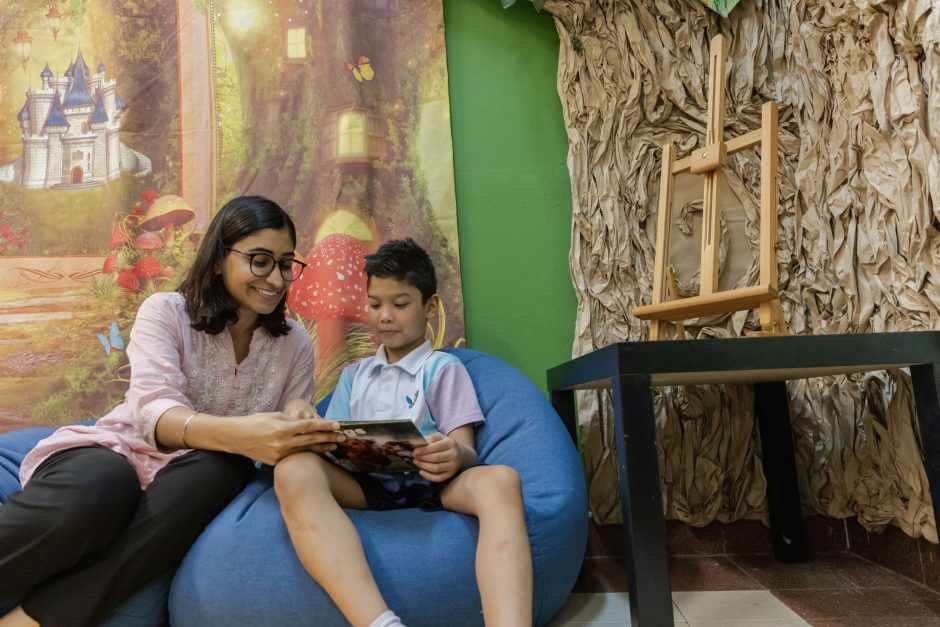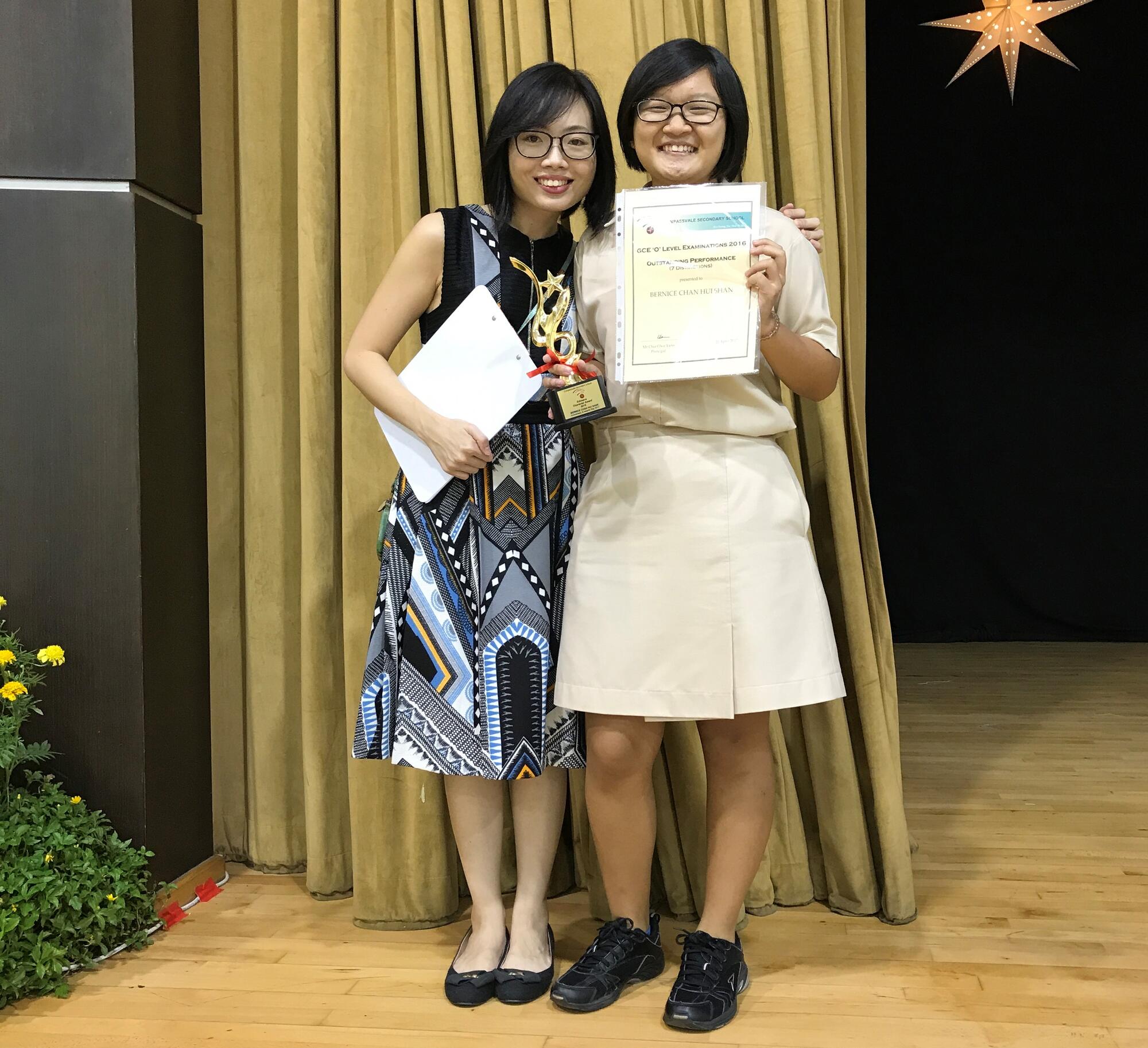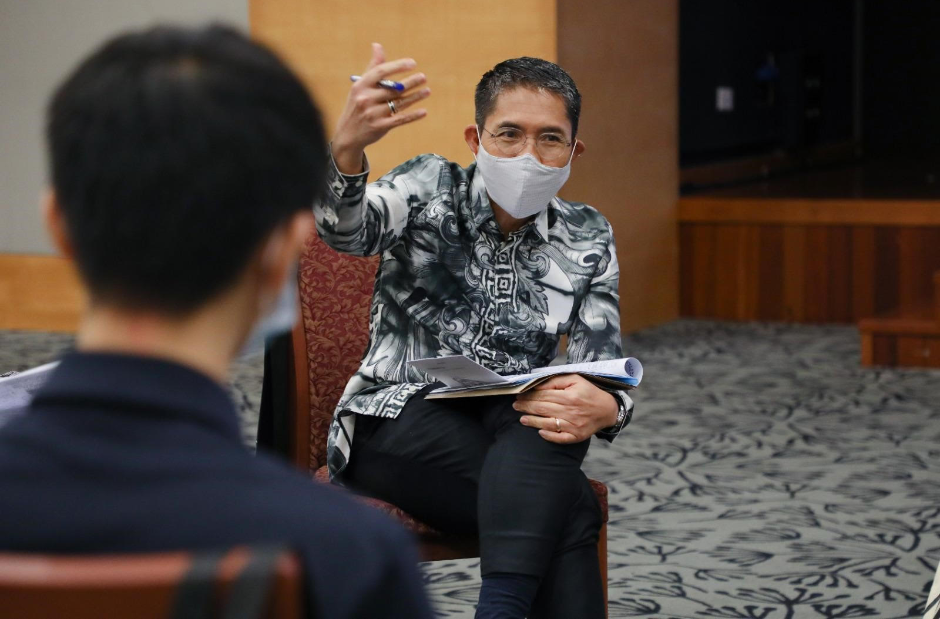As a young student, special education (SPED) teacher Ms Gurprit Kaur D/O Paramjee Singh struggled in school, especially with Mathematics. She found it difficult to understand the formulas and know when to apply them. Knowing how it is like to feel overwhelmed and discouraged in school, Ms Kaur desired to ensure her students do not feel the same way.
Today, Ms Kaur and two other SPED teachers have dedicated their careers to unlocking the joy of learning for their students. Discover their teaching methods and unique ways of turning challenges into opportunities, helping each student uncover their potential.
She made literacy come alive for her students through collaborations
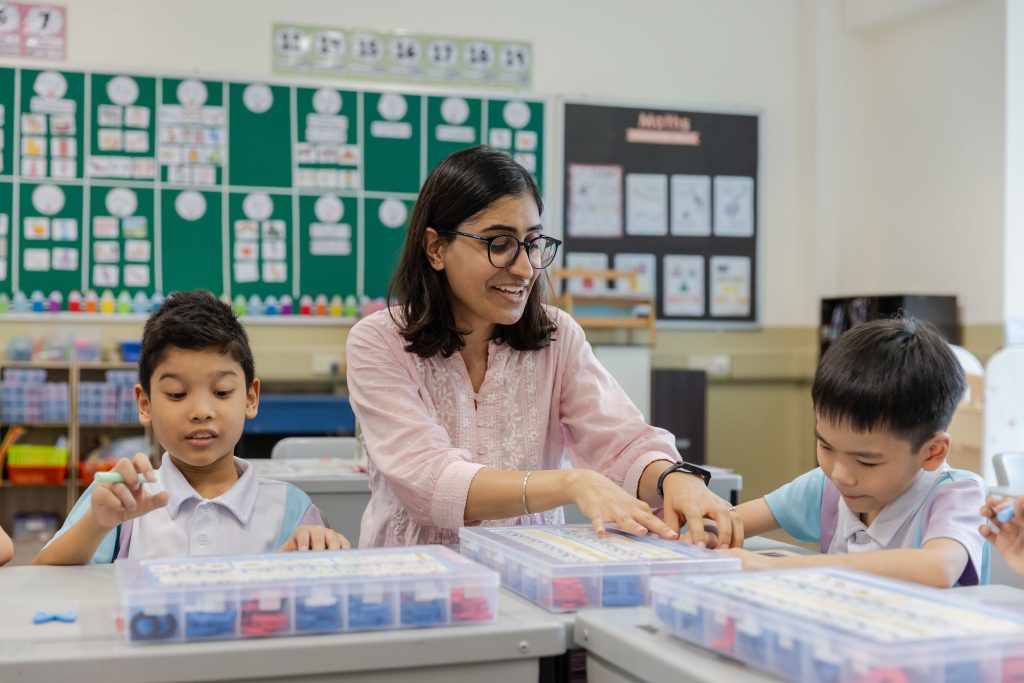
Beyond her own classroom, Ms Gurprit Kaur D/O Paramjee Singh from Grace Orchard School helps to improve English Language lessons for the whole school. Working with other teachers, she developed an Emergent Literacy Curriculum that incorporates activities such as rhyming and syllable counting games to build students’ ability to recognise and manipulate the sound structures of spoken words. She also created learning resources such as online instructional videos that teachers can refer to at their own pace. These videos help them improve their phonics instruction and strategies to build basic literacy skills for students. As a result, students are learning to read and pronounce words more accurately, becoming more confident readers.
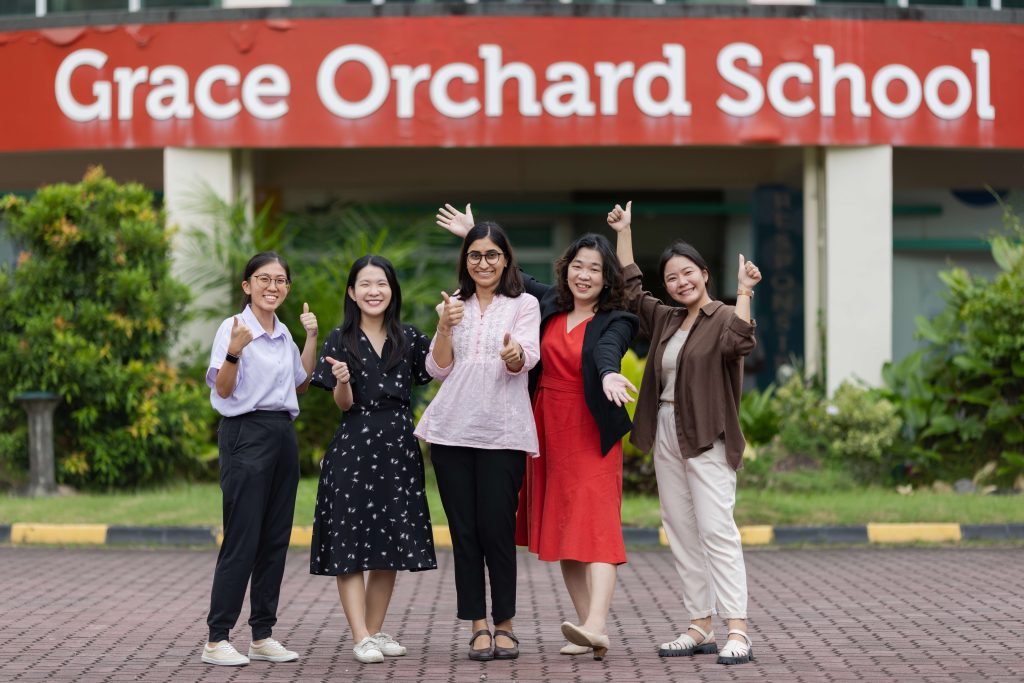
Being an avid reader, Ms Kaur wants to instil a love for reading in her students. Together with her team, she set up a reading room in the school, providing students with a quiet and comfortable space to dive into stories. Additionally, she collaborated with the National Library Board (NLB) to bring the NLB Molly Mobile Library Bus to her school, familiarising students with the actual process of borrowing library books. This mobile library not only let students practise practical skills, it also brought with it storytelling sessions and story-inspired arts and crafts. Students soon asked for more in-class reading time and some began flocking to the school library during recess, showing their growing interest in reading.
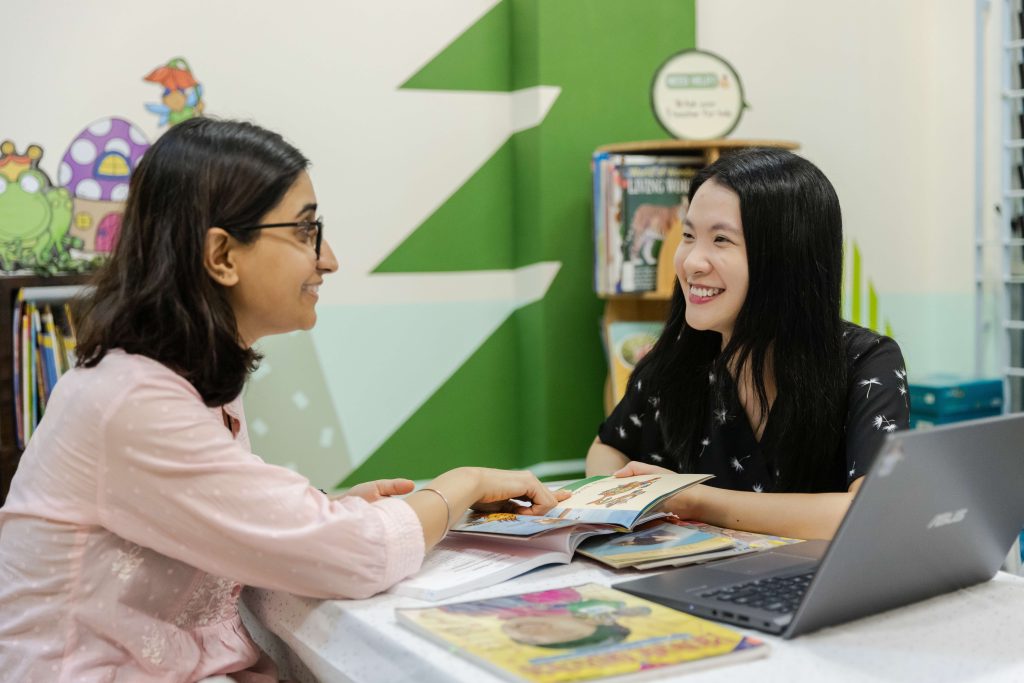
Desiring to give her students an authentic and fun way to learn how to write, Ms Kaur collaborated with Pei Chun Public School (PCPS) and Fairfield Methodist Primary School on a pen-pal exchange programme. This letter-writing activity not only sharpened her students’ English Language skills but also allowed them to find meaning in what they were learning in school. They get to meet their pen pals from PCPS in the finale of the programme each year.
“I was worried that my students would struggle to hold a conversation with their PCPS peers. I was pleasantly surprised to see them chatting confidently.”
Ms Gurprit Kaur D/O Paramjee Singh
She wields x-rays, skeletal models and spoilt food to show how Science shapes daily life
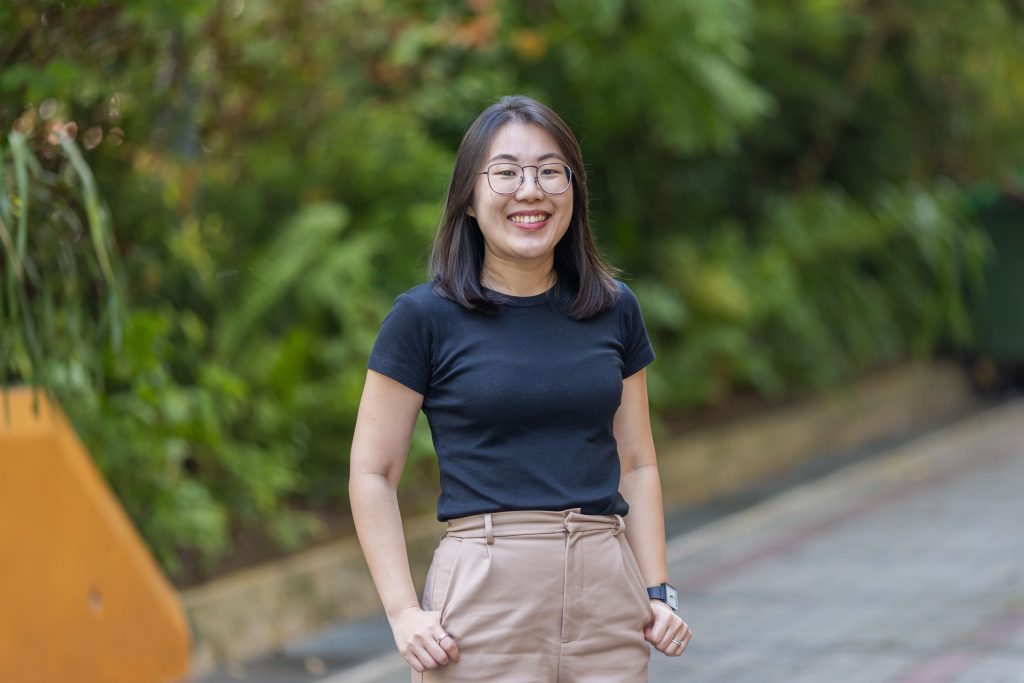
As the Head of Programme for Science and Information and Communications Technology at Metta School, Ms Lim Xue Wei Laura plays a pivotal role in introducing customised programmes on coding and online safety to help students become more confident, critical and responsible users of digital technologies. For example, the introduction of the new Lego Robotics programme this year gave students hands-on learning experiences in coding. “As they build, test, and successfully programme their robots, students gain valuable skills such as teamwork and resilience and a sense of achievement,” she says.
Ms Lim also redesigned the school’s Science curriculum: students explore the skeletal system using skeletal models and X-rays, while discussions on paralysis-inducing accidents underscore the importance of bone health. When tackling the topic of kitchen hygiene, Ms Lim uses carefully selected spoilt food samples (under controlled conditions) and presents relevant food poisoning case studies. This approach transforms potentially dry lessons into memorable and impactful experiences. For students in ITE Skills Certificate training, she weaves in relevant topics like Food and Science and basic electrical systems, taught in ways that are engaging and accessible.
“Our Science curriculum prioritises real-world relevance and incorporates hands-on experiences whenever possible to enhance student engagement and learning.”
Ms Lim Xue Wei Laura
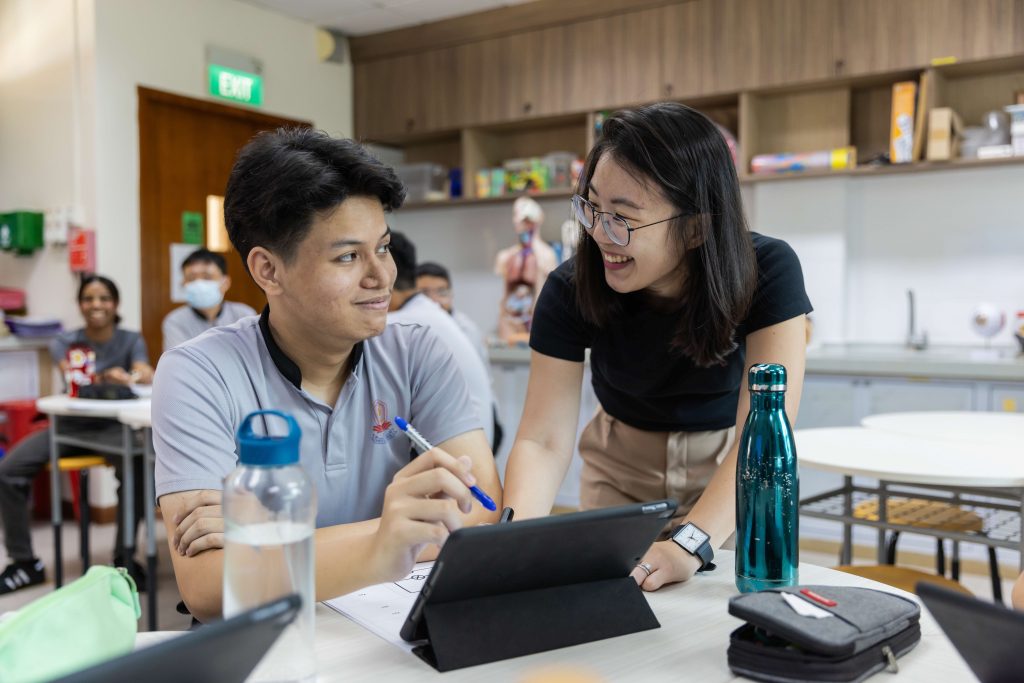
Recognising that engaging lessons are just one aspect of supporting students with special educational needs, Ms Lim also seeks to address individual challenges. When students experience meltdowns or struggle to understand learning materials, Ms Lim is quick to find solutions.
A prime example of Ms Lim’s impact is her work with Estee Goh, a student diagnosed with developmental delays at age three. Despite previous intervention classes yielding little progress, Estee’s trajectory changed under Ms Lim’s guidance. By dedicating time before lessons to discuss Estee’s interests and weekend activities, Ms Lim built a strong rapport with her. This connection bore fruit: Estee now follows instructions more readily and has made significant strides in learning.
To further support her development, Ms Lim collaborated closely with Estee’s mother. Together, they implemented behavioural strategies that bridged the gap between school and home. These strategies included storytelling to help Estee understand social situations and internalise expected behaviours.
This partnership between teacher and parent became key to Estee’s development, leading to significant progress in her emotional regulation. Now, Estee can manage her reactions better, even when her needs aren’t immediately met.
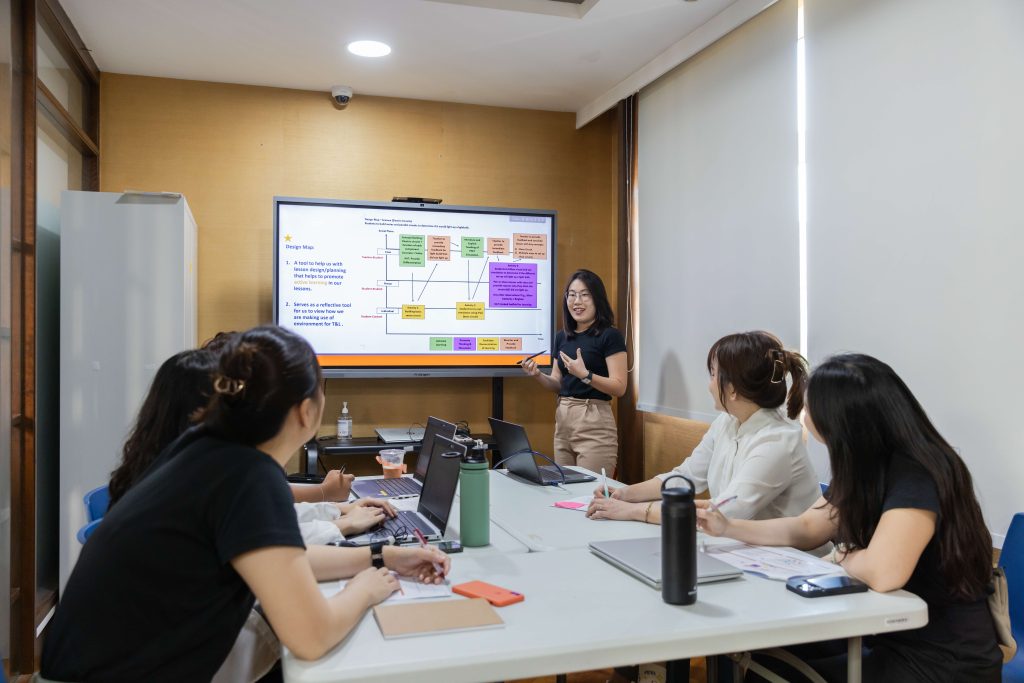
Ms Lim also guides new teachers in crafting personalised educational goals that fit what each student needs to learn and improve on. Additionally, she shares her expertise in lesson design, delivery, and managing challenging behaviours. For trainee teachers, Ms Lim reviews lesson plans and offers constructive feedback, helping them to be more prepared for lesson observations and better able to navigate the stress.
Ms Kimberly Soh, a beginning teacher, reflects on her experience: “As new educators, we sometimes grapple with feelings of being overwhelmed and self-doubt. However, Laura has been a constant source of reassurance. Her dedication as both a teacher and mentor is inspiring.”
She says, “Why not?”, when presented with opportunities to showcase her students’ talents and voice
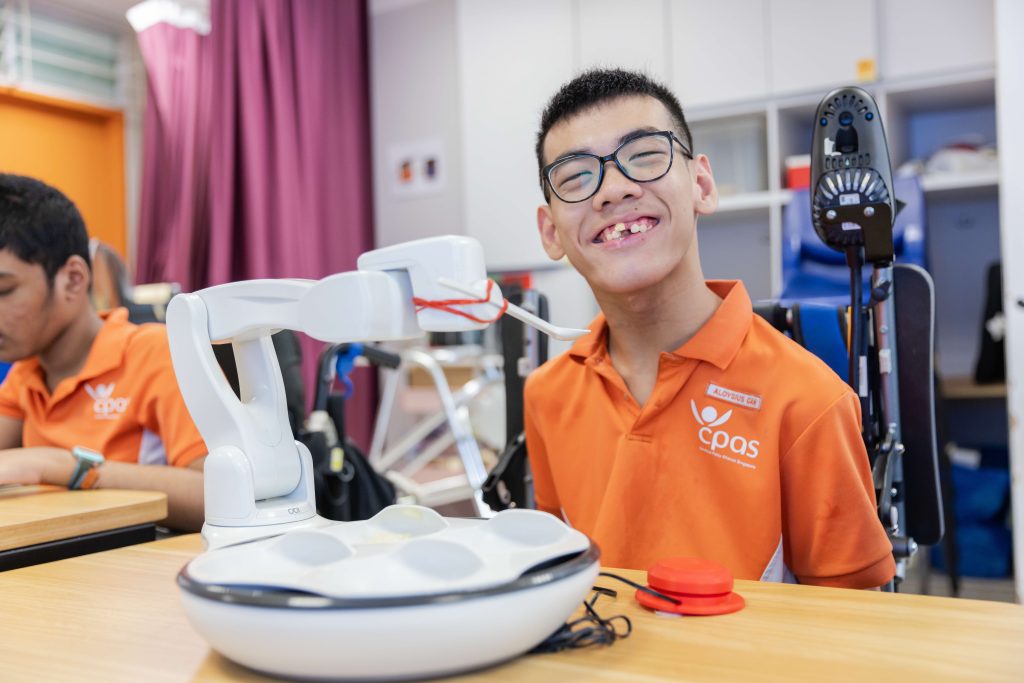
Ms Nur Irdayu binti Abdul Kadir, a teacher at Cerebral Palsy Alliance Singapore School (CPASS) (East), spearheads initiatives aimed at nurturing students’ communication skills and independence.
She inspires her students to actively engage with their community through meaningful projects. One such project saw her students taking the lead in conceptualising visual artworks to be displayed on the exterior of public buses. This gave students the opportunity to express their creativity and contribute to initiatives promoting understanding of persons with disabilities.
Yan Jia Yi, one of Ms Irdayu’s students, illustrated a bus captain assisting a wheelchair user to board the bus. Through her thoughtful design, Jia Yi aimed to raise public awareness about the unique needs and daily challenges faced by persons with disabilities during their commutes.
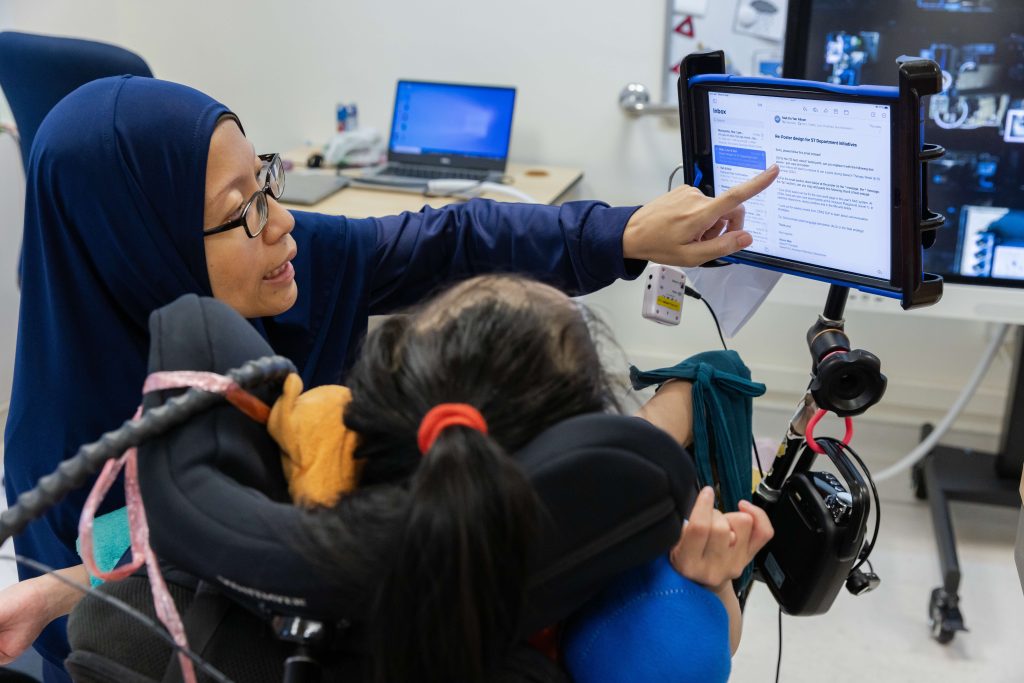
Ms Irdayu also led her students in creating e-greeting cards for school staff and raising funds for the Lee Ah Mooi Old Aged Home. “My students showcased their artistic talents and demonstrated their compassion and commitment to making a positive impact in the lives of others,” she says.
To empower her students and demonstrate the impact of their voices in shaping the school community, Ms Irdayu guided them in conducting a survey about canteen food. The students collected feedback and insights, which they then presented during school assemblies and shared with the school’s management and administrative department. As a result of their efforts, the canteen introduced new menu items, including macaroni and pasta, directly responding to survey findings.
“I got to share about what I thought of the school food!” says CPASS (East) student Aloysius Gan Kai Hong.
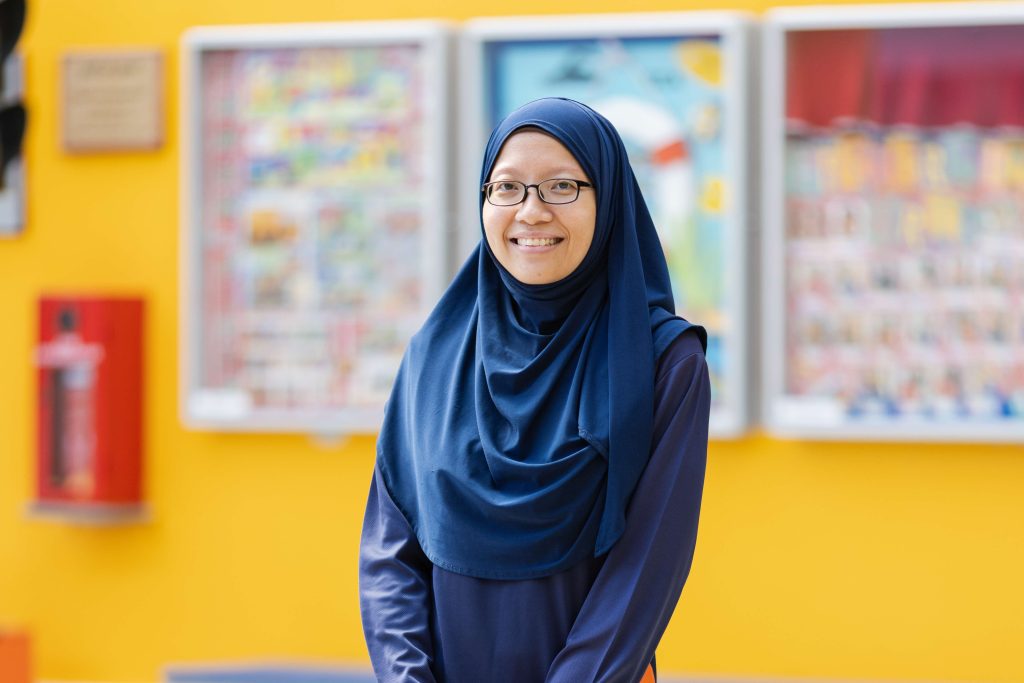
Motivated by her love of sports and her belief that all students should have the opportunity to participate, Ms Irdayu regularly organises Boccia games – a Paralympic sport – with students from neighbouring schools, such as Elias Park Primary School (EPPS). This event serves a dual purpose: introducing students to the sport and fostering understanding between diverse groups of learners. In a notable moment, a non-verbal student from CPASS (East) started the games by introducing himself and the sport using a communication tool on his tablet. This event also showed inclusion in action. The CPASS (East) students explained game rules, played alongside their EPPS peers, and the two groups got to know each other better.
“I often ask myself ‘Why not?’ Everyone can contribute when presented with the opportunity.”
Ms Nur Irdayu binti Abdul Kadir



